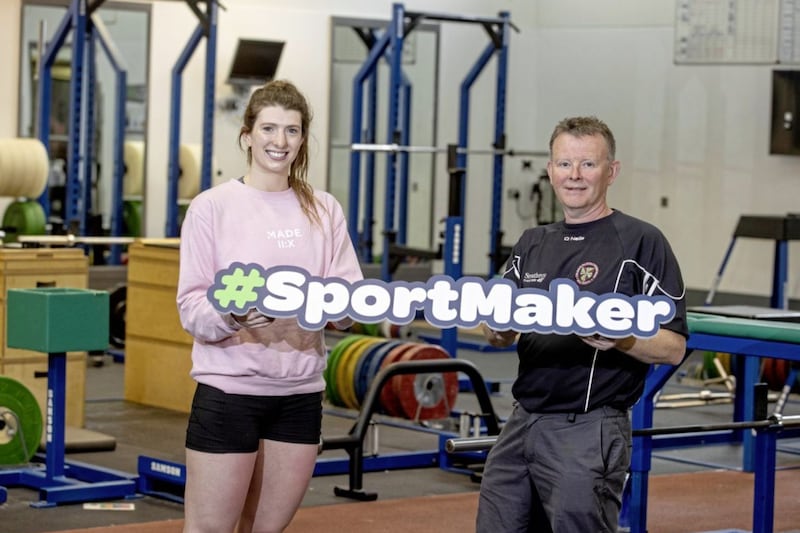COMMONWEALTH Games Gold medallist Bethany Firth has spoken candidly about living with a learning disability and how swimming changed her life.
The 26-year-old Co Down woman captured the hearts of British and Irish audiences by winning the 200m freestyle final at last month’s Birmingham Games.
Speaking at Lidl’s Sport for Good event at Colin Glen Dome yesterday morning, alongside Olympians Ciara Mageean and Rhys McClenaghan, the six-time Paralympian Gold medal winner revealed how her short-term memory disability impacts on her daily life.
“Before coming up to this event,” she says, “my mum’s been talking to me and giving me wee cues: ‘Remember you did this. This is what happened at the Commonwealths...’
“But, say, tomorrow I won’t know this again. It’s wee things that people don’t see daily. For instance, my husband will leave me little messages around the house just to remind me of certain things, leaving notes, and things I need to do today. People don’t see this because you can come to an event and you chat away, they don’t see what you’ve been through that morning or all those other things.”
A passionate supporter of participation in disability sports, Firth also described what it was like “touching the wall” ahead of her competitors to win Commonwealth Gold, her most coveted medal.
“You’re overcome by emotions. You want to scream and roar – but you also want to break down and cry because I’ve given so much, the strain you put on your body, you’re at breaking point...
“You literally are at this breaking point and you’re either going to break or you’re going to ‘PB’ and compete and give an outstanding performance. So to touch that wall there’s just a wave of emotions – all those sacrifices, getting up at 4am, saying no to friends, maybe not eating that thing and doing that extra two hours of training..."
She added: “No matter the mental hurdles you face, because you do have a lot of mental hurdles within sport and within daily life that people have to overcome, I think it’s really important that we talk about mental health within sport because there are a lot of people competing at the highest level who have mental health issues and I think it’s important to show that to people.”







